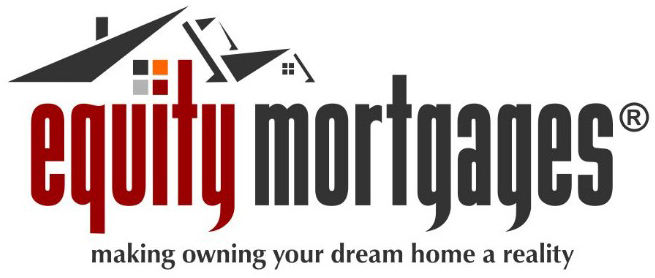Reviewing Different Types of Equity Release Mortgages You Can Choose From
Reviewing Different Types of Equity Release Mortgages You Can Choose From
Blog Article
Exploring the Various Types of Equity Release Mortgages Available Today
Equity Release home mortgages present various alternatives for homeowners aged 55 and over. equity release mortgages. These monetary items satisfy various demands and choices, permitting individuals to access funds from their home. From lifetime home loans to common recognition home loans, each type provides unique advantages. Recognizing these options is essential for making notified choices. What variables should one take into consideration when selecting one of the most ideal equity Release plan? The information that follow might clarify this essential subject
Understanding Equity Release Mortgages
Equity Release mortgages provide home owners, normally those aged 55 and over, with a way to access the worth bound in their home without needing to offer it. This financial choice allows people to transform a section of their home equity into cash money, which can be used for numerous purposes, such as home enhancements, paying off financial obligations, or financing retirement.Equity Release can take various kinds, however it basically involves loaning versus the value of the home while maintaining possession. Property owners can pick to receive a lump amount or a collection of smaller repayments, relying on their financial requirements and preferences.Additionally, the quantity readily available for Release is influenced by the residential property's worth, the house owner's age, and specific lender requirements. On the whole, understanding equity Release mortgages is necessary for home owners to make informed decisions concerning touching right into their home's equity while considering the long-term ramifications.
Lifetime Mortgages
Lifetime home loans represent one of the most popular types of equity Release. This monetary product enables homeowners, typically aged 55 or older, to obtain versus the value of their residential property while keeping ownership. The lending, which is secured against the home, accumulates rate of interest with time however does not require month-to-month settlements. Rather, the lending and built up interest are settled when the property owner dies or relocates into long-term care.Lifetime home loans use flexibility, as debtors can select to obtain a round figure or select a drawdown facility, accessing funds as required. Significantly, several plans included a no-negative-equity assurance, making sure that customers will never owe even more than the worth of their home. This function gives satisfaction, allowing individuals to appreciate their retirement without the concern of depleting their estate. On the whole, life time mortgages work as a practical alternative for those seeking financial support in later life.
Home Reversion Plans

Drawdown Lifetime Mortgages
While several home owners look for methods to access their wealth, drawdown life time home mortgages provide a flexible option that permits individuals to Release funds progressively. This type of equity Release home mortgage makes it possible for homeowners to obtain against the value of their residential or commercial property while retaining ownership. Unlike typical life time home loans, drawdown strategies enable borrowers to access a portion of their equity upfront and withdraw additional funds as needed, up to an established limit.This attribute can be especially beneficial for those who desire to handle their funds carefully, as it minimizes rate of interest buildup by only charging passion on the amounts drawn. Furthermore, drawdown lifetime home mortgages frequently come with a "no adverse equity guarantee," making certain that borrowers will never ever owe greater than their home's value. This option fits retirees that desire economic protection and flexibility, allowing them to satisfy unanticipated costs or maintain their way of life without having to sell their property.
Enhanced Lifetime Mortgages
Boosted Life time Home loans provide unique benefits for eligible home owners looking for to Release equity from their residential properties. Understanding the eligibility standards is vital, as it identifies who can benefit from these specialized lendings. However, it is additionally crucial to review the possible drawbacks related to enhanced options, making certain a well-rounded point of view on their use.
Qualification Criteria Clarified
Understanding the eligibility standards for Boosted Lifetime Mortgages is crucial for prospective candidates looking for to access the equity in their homes. Commonly, applicants have to be aged 55 or older, as this age requirement is common in the equity Release market. Home owners must possess a residential property valued at a minimal limit, which can vary by lender. Significantly, the building should be their main residence and in good condition. Lenders often examine the property owner's health and wellness standing, as certain health problems may boost qualification and advantages. In addition, applicants must not have existing substantial financial debts secured against the residential property. Satisfying these requirements allows people to explore Enhanced Life time Mortgages as a viable option for accessing funds tied up in their homes.
Advantages of Improved Home Loans
After clarifying the eligibility requirements, it ends up being apparent that Enhanced Life time Home loans offer a number of considerable advantages for home owners aiming to leverage their building equity. Largely, they supply access to a bigger financing quantity contrasted to typical lifetime home mortgages, benefiting those with wellness problems or age-related aspects that boost their life span risk. This boosted borrowing capability permits home owners to meet numerous economic requirements, such as home renovations or retirement expenditures. Additionally, these mortgages generally feature versatile payment options, allowing consumers to manage their funds a lot more efficiently. The no-negative-equity you can look here guarantee further assures that property owners will never owe even more than their building's value, offering comfort. Generally, Improved Lifetime Home mortgages provide a compelling alternative for qualified property owners looking for monetary services.
Potential Disadvantages Thought About
While Improved Life time Home loans offer countless benefits, possible disadvantages warrant cautious consideration. One substantial worry is the influence on inheritance; the equity launched decreases the worth of the estate left to recipients. Additionally, these home mortgages can accrue considerable interest gradually, leading to a substantial debt that may go beyond the original financing amount. There might additionally be restrictions on property adjustments or rental, restricting homeowners' versatility. In addition, enhanced products typically call for specific health conditions, suggesting not all homeowners will qualify. Taking care of the costs and costs linked with these home loans can be complicated, potentially leading to unforeseen expenses. Because of this, individuals should extensively evaluate their circumstance and seek advice from monetary consultants before proceeding.
Shared Appreciation Home Mortgages
Shared Admiration Home loans stand for an unique monetary setup that allows homeowners to gain access to equity while sharing future home value raises with the lending institution. This strategy provides possible advantages such as minimized month-to-month repayments, however it likewise features disadvantages that have to be carefully thought about. Understanding the qualification requirements is important for those interested in this alternative.
Idea Review
Equity Release home loans, specifically in the kind of common appreciation home loans, use homeowners an unique financial option that enables them to gain access to funds by leveraging the value of their property. In this setup, a lender supplies a car loan to the home owner, which is usually settled through a share of the residential or commercial property's future gratitude in worth. This suggests that when blog here the property owner offers the property or passes away, the lending institution obtains a percentage of the enhanced value, as opposed to simply the first lending amount. Shared recognition home mortgages can be appealing for those looking to supplement their income or finance significant costs while maintaining possession of their home. Nonetheless, the economic effects of common admiration have to be carefully considered by potential borrowers.
Advantages and Disadvantages
Shared admiration home mortgages can offer substantial economic advantages, they also come with notable downsides that prospective borrowers need to think about. These mortgages permit house owners to access equity in their homes while sharing a portion of any type of future gratitude with the lending institution. This plan can be beneficial throughout times of increasing residential or commercial property worths, using substantial funds without regular monthly settlements. The main disadvantage is the possible loss of equity; homeowners may finish up with significantly decreased inheritance for beneficiaries. In addition, the intricacy of the terms can result in misunderstandings pertaining to repayment obligations and the portion of admiration owed. For that reason, it is necessary for consumers to weigh these elements very carefully prior to devoting to a common admiration home mortgage.
Qualification Needs
What standards must home owners fulfill to get approved for a common gratitude home loan? Mainly, prospects have to go to least 55 years of ages, guaranteeing they are within the target market for equity Release products. Furthermore, the residential or commercial property needs to be their main home and usually valued above a defined minimum limit, typically around ? 100,000. Lenders also assess the home owner's economic situations, including revenue and arrearages, to ascertain they can take care of the home loan responsibly. Significantly, the home must remain in good problem and devoid of significant legal encumbrances. Homeowners must also have a clear understanding of the terms, consisting of how admiration will be shown to the lender upon sale or transfer of the building, as this affects total returns.
Choosing the Right Equity Release Alternative

Often Asked Inquiries
What Age Do I Required to Be for Equity Release?
The age requirement for equity Release generally starts at 55 for most strategies. Some companies may offer alternatives for those aged 60 and above, showing differing terms based on specific situations and lender plans.
Will Equity Release Affect My Inheritance?
Equity Release can affect inheritance, as the amount borrowed plus rate of interest lowers the estate's value. Successors may receive much less than prepared for, depending upon the building's gratitude and the overall financial debt at the time of passing.
Can I Move Home With Equity Release?
The question of moving residence with equity Release emerges frequently. Normally, people can move their equity Release strategy to a brand-new residential or commercial property, yet certain terms and problems might apply, needing consultation with the lending institution for guidance.
Exist Costs Connected With Equity Release Mortgages?
Charges related to equity Release home mortgages can include setup fees, valuation fees, and lawful costs. Additionally, there might be early repayment charges, which can influence the overall expense and economic ramifications for the customer.
Just How Does Equity Release Influence My Tax Obligation Circumstance?
Equity Release can affect one's tax obligation circumstance by possibly raising taxed revenue, as launched funds are taken into consideration funding. Nonetheless, it normally does not incur prompt tax obligation responsibilities, making it important to speak with an economic expert for tailored advice.
Conclusion
In summary, the variety of equity Release home loans readily available today offers property owners aged 55 and over numerous pathways to access their property's value - equity release mortgages. Whether choosing a life time mortgage, home reversion plan, or various other options, each choice offers distinct advantages tailored to specific financial demands. Careful factor to consider and appointment with a financial consultant are essential to ensure the selected equity Release remedy straightens with monetary scenarios and personal goals, eventually facilitating notified decision-making for a safe monetary future. Equity Release home mortgages existing different alternatives for property owners aged 55 and over. Equity Release mortgages give home owners, typically those aged 55 and over, with a method to access the value tied up in their property without requiring to offer it. Boosted Life time Home loans use distinctive advantages for qualified homeowners looking for to Release equity from their residential or commercial properties. Equity Release mortgages, especially in the type of shared admiration mortgages, provide homeowners a special financial solution that permits them to accessibility funds by leveraging the worth of their residential property. In summary, the variety of equity Release mortgages available today uses home owners aged 55 and over multiple pathways to access their building's value
Report this page